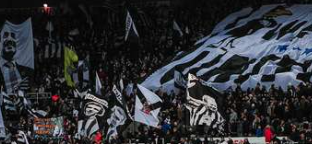Newcastle United Ltd said revenue fell 3% to £125.8 million in the year to June 30, 2016 — during which it was relegated to the EFL Championship — and profit after tax fell from £32.5 million to £4.6 million.
Newcastle said term loans from the company’s owner, Mike Ashley, and companies under his control, remained unchanged at £129 million “and continue to be interest-free.”
The company said: “On 21 December 2016, St James Holdings Limited, a company controlled by Mr Ashley, provided a further loan of £33 million.
“£18 million was used to repay Mr Ashley his outstanding personal loan with the remaining £15 million providing additional essential funds for operating activities.”
The company said the most significant factor in the lower revenue figure was a £4.5 million drop in media income, down from £77.2 million to £72.7 million.
Average home league attendance fell slightly to 49,754 from 50,349.
“In addition to the impact of an 18th placed finish on the merit-based payments received by the club, there were four fewer matches screened live (16 compared to 20),” said the company.
Operating expenses increased 7% to £96.5 million and amortisation of players’ registrations increased by £7.8 million to £28.3 million.
Newcastle had a significant spend on additions to the playing squad in the summer 2015 and January 2016 transfer windows, which included the purchase of Georginio Wijnaldum, Aleksandar Mitrović, Florian Thauvin, Chancel Mbemba, Jonjo Shelvey, Andros Townsend and Henri Saivet.
The total net cash spend on players was £70.7 million, compared to £23.8 million in 2015.
Wages to turnover ratio soared to 59.4% from 50.1% in 2015.
Net debt increased from £80.7 million at June 30, 2015 to £127.3 million in June 2016.
Newcastle United Ltd managing director Lee Charnley said:”The 2015-16 season was extremely disappointing for everyone connected with the club.
“Significant sums of money were spent to strengthen the playing squad in the summer 2015 and January 2016 windows, which also resulted in an increase in our annual wage bill.
“In the context of this spend, relegation was both unacceptable and totally unexpected.
“The financial impact of relegation is difficult to overstate and this will become evident in our next set of financial results for the year ending June 2017.
“The biggest impact by far is the dramatic reduction in centrally distributed income that comes with dropping down a division; the reality being our income in this area is forecast to fall by over £30 million compared to 2015-16.
“To highlight the differences, our 16 live TV games last season earned us £12 million in revenue.
“Contrast this with 2016-17 EFL live fees which, based on our current number of confirmed appearances (12 away and 6 home) will earn us a total of £720k.
“To illustrate further the cost of relegation, 2016-17 marks year one of the new Premier League TV deal and the team that finishes in 18th place this season is expected to receive in the region of £30 million more revenue than we did for the same place finish last year.
“Our approach, following relegation, was to make further sizeable investment in our playing squad in preparation for the EFL Championship season ahead and our annual wage bill is, we believe, still above and beyond many current Premier League teams.
“Whilst not without financial risks, this strategy was adopted in order to maximise our chances of promotion at the first time of asking.
“Outgoing transfers will ultimately generate a significant net player trading surplus for the summer 2016 transfer window but, due to the cash profile of the deals, this will result in a net cash outlay in 2016-17.
“Our adopted strategy has therefore only been made possible by the cash injection from our owner, who continues to provide interest free funding to support the club’s operations, never more important than during this financially challenging season.”




